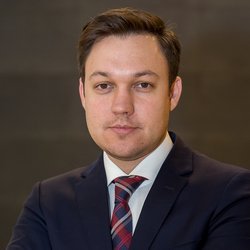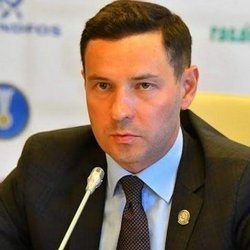Taliya Minullina on difficulties of PPP projects: ‘Who provides guarantees?’
TIDA held a forum of PPP projects in Kazan
“The game you can’t lose if you know the rules”: public and private partnership (PPP) can become one of the key mechanisms in Tatarstan to implement social projects in health care, sport and housing and utilities if there are cast-iron state guarantees that revenue will return. Head of Tatarstan Investment Development Agency (TIDA) Taliya Minullina said what “three horses” could take private investments into the social sphere.
Fair play
The specifics of the implementation of PPP projects in Russian regions and instruments of minimising budget risks when signing such contracts became the key topic of the sectoral online forum of PPP, which opened on 8 December on an online platform of Tatarstan Investment Development Agency. It has been held for the fourth time, but the current one is topical because amid the COVID-19 pandemic the problem of attraction of private investments via PPP in regions’ economy goes to the forefront, however, it is important for investors to define clear rules. Precisely this is why the plenary session was named “The game you can’t lose if you know the rules”.
As TIDA’s head Taliya Minullina noted, the areas of application of the projects implemented via PPP can expand and cover not only health care, sport and housing and utilities if the state provides firm guarantees that revenue will return.
A lot of participants from different regions of Russia and CIS countries joined the transmission. Tatarstan Prime Minister Alexey Pesoshin delivered a welcome speech. He noted that Tatarstan has a lot of forms of public support for investors, including all kinds of tax regimes. TIDA is an agency that’s responsible for developing PPP projects in Tatarstan, he stressed.
Moreover, representatives of federal agencies of power and federal funds participated in the plenary discussion. So Olga Serdyuk, vice director general, chairperson of state-owned Housing and Utilities Reformation Fund, and Azat Kadyrov, first vice minister of sport of Russia delivered a speech. Participants in the forum admitted that the COVID-19 pandemic, on the one hand, led to new difficulties, on the other hand, it opened opportunities to simplify the procedure of selection of projects where a business can become the state’s partner in the social sphere.
Challenges of PPP: why its mechanisms don’t work everywhere
Executive Director of National Centre for PPP ANO Maksim Tkachenko summarised the practice of implementation of PPP projects in the country. According to him, 439 projects for 1,537bn rubles are implemented at federal level, 30 projects for 1,249bn rubles at regional level, 2,038 for 562bn rubles at municipal level. Moreover, every federal ruble was equal to 1,15 ruble of private investments, 1,35 ruble at regional level and 1,86 ruble at municipal level, which is the biggest number. However, the pandemic influenced the reduction in preferential agreements in housing utilities, he indicated.

Head of TIDA Taliya Minullina explained why the mechanisms of PPP didn’t work well everywhere. She indicated that regions unlike the federal centre can’t provide long-term guarantees that investors will get revenue back in 10 years in advance.
How region can guarantee that revenue will return in 10 years
“But we have opened our forum 20 minutes late today,” Minullina suddenly reminded the audience that the forum opened late. “It is very symbolic from a perspective of the development of public and private partnership in the Russian Federation because we seem to have everything, people seemed to come, and laws are ready, we have some ideas. But in fact, this PPP doesn’t work in our country. I think there is a series of problems that impede this development, moreover, at all levels,” she noted and added that the system of state support for investors in Tatarstan worked “quite well”.
“From the point of the view of a private business, it is good when you have guarantees that money will return. The stance of banks is also clear that you have guarantees the money will return. But who provides such guarantees to them? A region gives them the guarantees nowadays even if there is a big grant from the Federation. <…> As a donor, Tatarstan prefers implementing the biggest part of projects the republic needs through public investments. This is why today in Tatarstan we don’t have a public initiative, but there is a private initiative,” the head of TIDA stressed.
“So at the moment it turns out that a Russian region assumes long-term guarantees, and we see more risks in this scheme than benefit from this mechanism,” the speaker added. According to her, the region creates a budget during the year, this is why it is hard to have a look at the future.
Taliya Minullina named “three horses” that can take PPP projects to a “smooth road”. Firstly, through the mechanism of public debt repayment. Secondly, through the rating of the Agency of Strategic Initiatives that integrates these projects. Thirdly, through a private initiative. She says that projects in health care are promoted better because money is paid back through the fund of Compulsory Medical Insurance.
How PPP project in Chelny was implemented

“We made up a scheme. It had a lot of nuances and complications,” he said.
The total value of the project was 400 million rubles. Chelny’s authorities allocated 50 million rubles from the budget, but the federal co-financing was 58%. Instead, the municipal authorities got the opportunity of offering services to residents of this city in this complex for 4 million rubles a year. In conclusion, Vladimir Leonov said that there was no rule for Tatarstan to participate in PPP projects because always there are negotiations.
Nowadays, the federal system in Tatarstan has the biggest amount of preferential agreements in housing utilities — 155 agreements, another 12 — in health care, 5 — in energy services, 3 — in culture and leisure, one agreement was signed within municipal and private partnership, precisely in the venue in Naberezhnye Chelny. So Russia’s first agreement of this kind according to Federal Law No. 224-FL was signed in 2018 to create a sports venue.